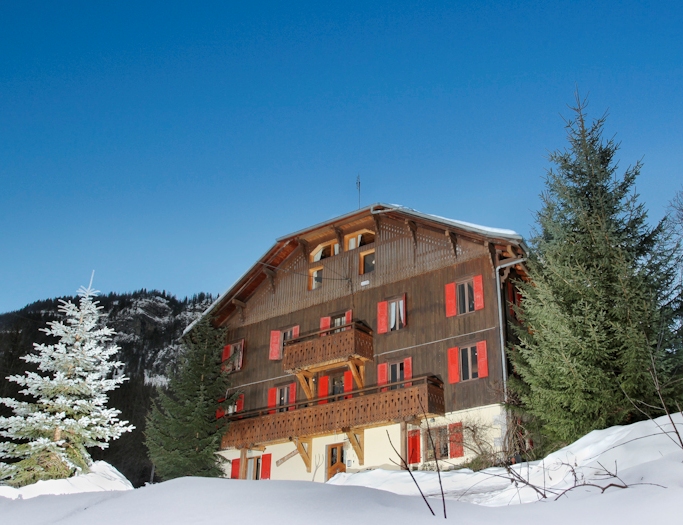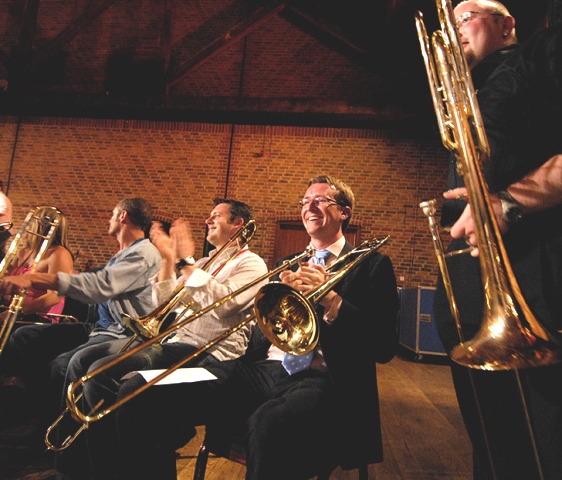
Business Retreats' Alpine venue: would your team benefit from a visit?
Post-apocalyptic team building
Trevor Laurence’s article in the October edition of The Leisure Review excited no little interest in the subject of kick-starting teams and, with the swingeing cuts announced by the chancellor expected to decimate departments and force unlikely partnerships, the issue of speeding up the team-building process has risen to the top of a lot of surviving managers’ agendas. Mick Owen looks at two very different approaches to giving your team a head start.

Business Retreats' Alpine venue: would your team benefit from a visit?
Without a crystal ball it is impossible to know how the finer points of the chancellor’s 20 October exercise are going to affect real people in real situations. We know the headlines but no one can be sure what life will be like in Southport, Southampton or South Shields in six months’ time. What is certain is that personally and professionally people will be feeling isolated, unloved and undervalued. As the titular leader of a decimated team, an inherited team or a team forced together by some unholy economic soldering iron, how do you get from where you are now to where you need and want to be, an effective working unit where people are happy to come to work and keen to achieve?
For many trying to manage a team that only exists on paper that must seem like a fond hope but for Jeremy Blease, a man who specialises in making people feel valued, the key to peak performance is investment in people. “My fundamental belief is that people are life’s most potent ingredient,” he says. “If newly formed teams can’t perform to their potential, projects become problematic instead of exciting and opportunities for growth are threatened from within.” His response is to offer business teams time and space to interact in environments where, because the venue, hospitality and logistics are geared to the individuals’ needs, people can relax and focus on what is important: their business and their business teams. With the simplicity that underpins his success his company is called Business Retreats and it offers two contrasting venues, one on the Thames in Mortlake and one at Aravis in the French Alps, which clients can take over, be a little bit spoilt in and let “the relaxed environment foster focus, creativity and a crisp new perspective on business” as Blease would have it.
He may wax a little lyrical for the average hard-headed business leader or hard-pressed public agency chief executive but in the new austerity the sense of allowing your best thinkers time and space makes a great deal of sense. “Failing to plan is planning to fail” is of course a collector’s item from the big book of hackneyed management catch phrases but by taking away the time and space needed for creative thinking you handicap your organisation by taking away its biggest resource. As we enter the new post-Osborne-inspired apocalypse Blease’s claim that “it’s important to create your own footsteps within a team otherwise you are walking in others” begins to make a lot of sense.
Time and space, of course, are costly and at the other end of the team-building spectrum John Bird, the managing director of team-building specialists Catalyst, is used to being told to pare away both. “We used to be given half a day or even a day for an intervention but nowadays we are sometimes lucky to get 90 minutes,” he says. As part of Catalyst, a company which has been providing team-building events for over two decades and had its 20 minutes in the media glare when chosen by Ian McGeechan to work with his 1997 British and Irish Lions squad prior to their departure for South Africa, Bird knows how the increased pace of modern business has almost squeezed out ‘people time’: “All too often the drive to achieve targets in a working world accelerated by the global revolution in electronic communication has meant authentic interaction, communication and involvement between people has become a casualty.”
Like Blease, he believes that investing some time in the people in a business is of paramount importance. However, as well as targeting management or functional teams, he also works with the whole company. “Large corporates share the same human resource challenges: their people are disparate, they are unaware of the company’s brand identity, they don’t share corporate values and there is no unity or sense of belonging to the corporate whole. Our events help counter these negatives and introduce positives, such as problem-solving, attitude change and offering the chance for whole-company review and reflection. We can and have delivered events to 5,000 people.”
With team theory suggesting that fully functioning teams can only have around a dozen people in them, is this scale of intervention truly team-building? Steve Howard, the director of training and development at Lloyds Pharmacy, used the Catalyst event Orchestrate with his company’s 70-strong human resources department: “The HR department was restructured quite fundamentally, and there was a definite need to bring people together, engage them with the new HR vision and ethos. [We wanted] to unite the team by involving them in a shared experience that was unique and highly memorable.” With two hours to deliver a tangible result Catalyst used the symphony orchestra as a vehicle and, having heard professional musicians play a piece, the team members were then coached – as Howard says “leaving nobody behind” – to play the same piece. Reflecting on the event, Howard is convinced: “I wouldn’t have believed that a team of 70 could play a piece of music so well in such a short period of time. A seemingly insurmountable task had been made possible… by a team effort, a willingness to get stuck in and by supporting each other… powerful messages in any period of change and restructure.”
Catalyst use music, dance, haute couture and Formula 1, while Business Retreats favour peace, comfort and a relaxed atmosphere but both believe that teams function better when the people in them are engaged, valued and given the chance to reflect on their roles. With businesses struggling, public bodies under pressure and the people within both crying out for support it would be a brave manager indeed who ignored their messages.
Trevor Laurence's article on kick-starting work teams can be found in the October edition of The Leisure Review.
The Leisure Review, November 2010
© Copyright of all material on this site is retained by The Leisure Review or the individual contributors where stated. Contact The Leisure Review for details.
Download a pdf version of this article for printing

Ochestration: building teams through the medium of the brass section
Allegro: two hours to recreate a symphony leaving no one behind